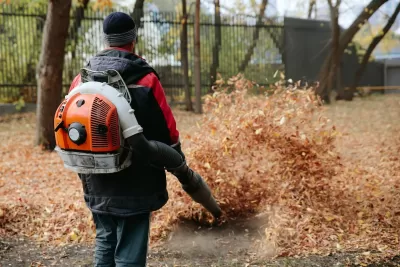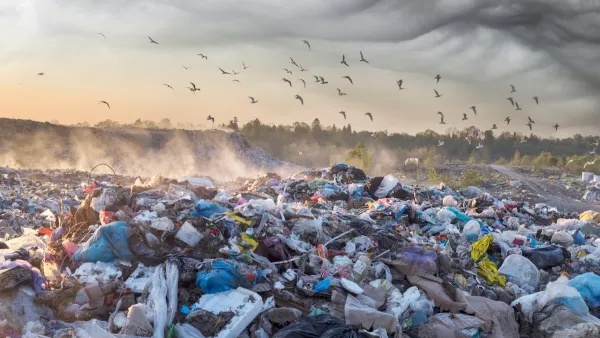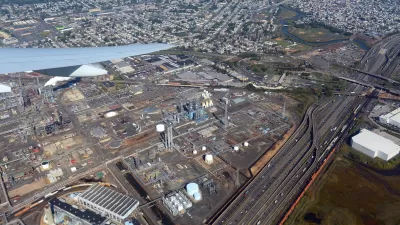The devices release as much air pollution as driving 1,100 miles and have been banned in over 100 U.S. cities.

The Baltimore city council voted to outlaw gas-powered leaf blowers in the city, citing pollution concerns, reports Alyssa Ochs for The Cool Down. “The new ban will reduce air and noise pollution in local neighborhoods as these items of lawn care equipment are phased out citywide.” City contractors will stop using gas blowers after December 15 of this year, while residents and landscaping companies have until 2025 and 2026, respectively, to end their use.
According to council member Lisa Rodvien, leaf blowers and other gas-powered lawn care equipment account for 4 to 5 percent of greenhouse gas emissions in the United States.
Ochs notes that over 100 other cities around the country have banned the devices to reduce localized air pollution and noise. The devices release four times as much air pollution as lawnmowers and are linked to health problems including cancer, reproductive harm, and asthma.
FULL STORY: Major US city lawmakers propose law to ban common household item: 'These are very high-emissions devices'

Planetizen Federal Action Tracker
A weekly monitor of how Trump’s orders and actions are impacting planners and planning in America.

Congressman Proposes Bill to Rename DC Metro “Trump Train”
The Make Autorail Great Again Act would withhold federal funding to the system until the Washington Metropolitan Area Transit Authority (WMATA), rebrands as the Washington Metropolitan Authority for Greater Access (WMAGA).

The Simple Legislative Tool Transforming Vacant Downtowns
In California, Michigan and Georgia, an easy win is bringing dollars — and delight — back to city centers.

DC Backpedals on Bike Lane Protection, Swaps Barriers for Paint
Citing aesthetic concerns, the city is removing the concrete barriers and flexposts that once separated Arizona Avenue cyclists from motor vehicles.

In These Cities, Most New Housing is Under 441 Square Feet
With loosened restrictions on “micro-housing,” tiny units now make up as much as 66% of newly constructed housing.

Albuquerque’s Microtransit: A Planner’s Answer to Food Access Gaps
New microtransit vans in Albuquerque aim to close food access gaps by linking low-income areas to grocery stores, cutting travel times by 30 percent and offering planners a scalable model for equity-focused transit.
Urban Design for Planners 1: Software Tools
This six-course series explores essential urban design concepts using open source software and equips planners with the tools they need to participate fully in the urban design process.
Planning for Universal Design
Learn the tools for implementing Universal Design in planning regulations.
Smith Gee Studio
City of Charlotte
City of Camden Redevelopment Agency
City of Astoria
Transportation Research & Education Center (TREC) at Portland State University
US High Speed Rail Association
City of Camden Redevelopment Agency
Municipality of Princeton (NJ)





























